Following Cancer With Tiny Magnets

Following cancer with tiny magnets
Life-saving surgery and treatments rely on doctors being able to accurately track the spread of cancers.
A new device that uses iron particles and a magnetic probe will allow clinicians to narrow down exactly which lymph nodes tumours spread to.
Developed by Aidan Cousins with colleagues at the University of South Australia, the novel approach is more sensitive and safer than existing methods for monitoring cancer.
“Pre-clinical trials of our approach suggest it gives a very clear picture of where tumours are most likely to spread,” Aidan explained.
“It will allow subsequent surgery and treatment options to be refined for better standards of care and improved prognosis.”
The technique involves injecting biodegradable iron particles at the primary site of a tumour, from where – as part of their normal surveillance activities – cells of the immune system transport them to the draining lymph nodes.
More information: A. Cousins et al. Novel Handheld Magnetometer Probe Based on Magnetic Tunnelling Junction Sensors for Intraoperative Sentinel Lymph Node Identification, Scientific Reports (2015). DOI: 10.1038/srep10842
Electron microscopic image of a single human lymphocyte. Credit: Dr. Triche National Cancer Institute
More Posts from Curiositytherover and Others

Amazon Unveils New Prime Air Drones. See It In Action
Amazon gives the world a glimpse of the future today, as they unveiled the Prime Air drone, which promises to deliver packages in under 30 minutes.
The Prime Air prototype, which weighs 24 kg (55 pounds), can carry packages of up to 2.2 kg (5 pounds) and is designed to fly under 152 meters (400 feet). It is also equipped with “sense and avoid” technology, which will allow it to dodge obstacles that it may encounter en route to its point of delivery.
Our video illustrates its features, and it takes you through the step-by-step process of how the unmanned aerial device will operate.
See the video at at: http://futurism.com/links/amazon-unveils-new-prime-air-drones/

Scott Kelly is two inches taller after 340 days in space
After 340 days on the International Space Station, Scott Kelly grew 2 inches taller than his twin brother who spent the time on Earth, CNBC reports.
Gaining a couple inches is pretty common among astronauts that spend a significant amount of time in space. That’s because the microgravity environment allows room for their vertebrae to expand. Here’s how NASA explains it:
Imagine that the vertebrae in your back form a giant spring. Pushing down on the spring keeps it coiled tightly. When the force is released, the spring stretches out. In the same way, the spine elongates by up to 3% while humans travel in space. There is less gravity pushing down on the vertebrae, so they can stretch out — up to 7.6 centimeters (3 inches).
He aged less than us Earth-bound humans too.
Follow @the-future-now

Well, it had to come to an end some time. There’s been a whole lot of buzz over KIC 8462852 - a star located about 1,500 light-years away between the Cygnus and Lyre constellations of our Milky Way galaxy. It’s displaying such weird behaviour, one scientist even threw the possibility of an advanced alien civilisation building a giant Dyson sphere nearby.
But new research has come up with the most plausible explanation yet for KIC 8462852’s weirdness - a barrage of comet fragments are spinning in a tight orbit around the star. […] But despite the evidence, they’re still not ready to discount the alien megastructure idea entirely. “We can’t really say it is, or is not,” said Marengo. “But what the star is doing is very strange. It’s interesting when you have phenomena like that - typically it means there’s some new physical explanation or a new concept to be discovered.”
Continue Reading.

Sky-piercing towers, Hyperloop transports, driverless cars, and 3D-printed buildings. Welcome to Dubai, the City of the Future.



Li-Fi is 100 times faster than Wi-Fi
What’s next in high-speed Internet? Beams of light, flickering faster than the eye can see. A recent test by New Delhi-based startup Velmenni used “Li-Fi” to transfer data at 1 gigabyte a second. The futuristic tech uses LED lightbulbs to send the high speed data — which could have a great impact on our world.
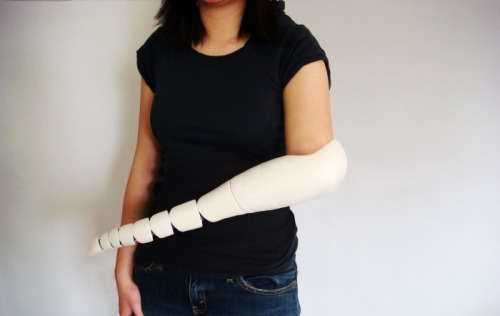
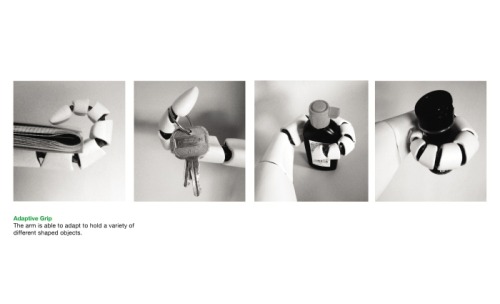
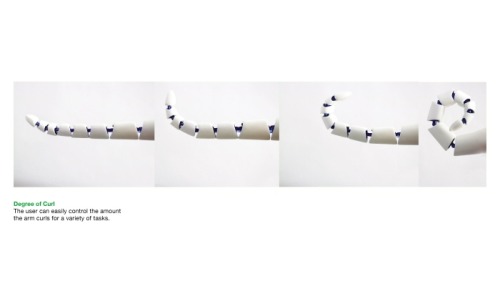
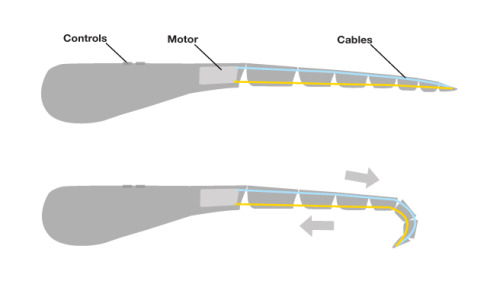
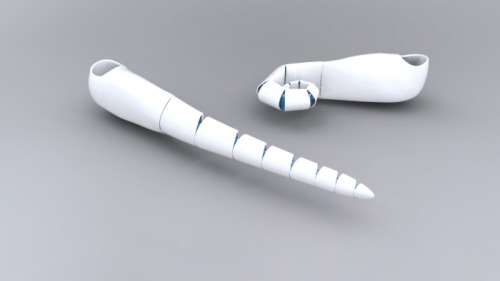
Solar System: Things to Know This Week
Our solar system is huge, let us break it down for you. Here are a few things you should know this week:
1. Closeup of a King

For the first time since it entered orbit around Jupiter in July, our Juno spacecraft has flown close to the king of planets—this time with its eyes wide open. During the long, initial orbit, Juno mission managers spent time checking out the spacecraft “from stem to stern,” but the science instruments were turned off as a precaution. During this latest pass, Juno’s camera and other instruments were collecting data the whole time. Initial reports show that all went well, and the team has released a new close-up view that Juno captured of Jupiter’s north polar region. We can expect to see more close-up pictures of Jupiter and other data this week.
+Check in with Juno
2. Getting Ready to Rocket

Our OSIRIS-REx mission leaves Earth next week, the first leg of a journey that will take it out to an asteroid called Bennu. The mission will map the asteroid, study its properties in detail, then collect a physical sample to send back home to Earth. The ambitious endeavor is slated to start off on Sept. 8.
+See what it takes to prep for a deep space launch
3. New Moon Rising

The Lunar Reconnaissance Orbiter (LRO) has already mapped the entire surface of Earth’s moon in brilliant detail, but the mission isn’t over yet. Lunar explorers still have questions, and LRO is poised to help answer them.
+See what’s next for the mission
4. A Mock-Eclipse Now

We don’t have to wait until next year to see the moon cross in front of the sun. From its vantage point in deep space, our Solar Dynamics Observatory (SDO) sometimes sees just that. Such an event is expected on Sept. 1.
+See the latest sun pictures from SDO
5. Jupiter’s Cousins

Our galaxy is home to a bewildering variety of Jupiter-like worlds: hot ones, cold ones, giant versions of our own giant, pint-sized pretenders only half as big around. Astronomers say that in our galaxy alone, a billion or more such Jupiter-like worlds could be orbiting stars other than our sun. And we can use them to gain a better understanding of our solar system and our galactic environment, including the prospects for finding life.
Want to learn more? Read our full list of the 10 things to know this week about the solar system HERE.
Make sure to follow us on Tumblr for your regular dose of space: http://nasa.tumblr.com

End texts with a period if you want to seem like a jerk

-
 thechosenone42 liked this · 2 years ago
thechosenone42 liked this · 2 years ago -
 mangocat123 liked this · 8 years ago
mangocat123 liked this · 8 years ago -
 khvlidxx liked this · 9 years ago
khvlidxx liked this · 9 years ago -
 ahmedsfs-blog liked this · 9 years ago
ahmedsfs-blog liked this · 9 years ago -
 secretporcupine reblogged this · 9 years ago
secretporcupine reblogged this · 9 years ago -
 littlesoybean reblogged this · 9 years ago
littlesoybean reblogged this · 9 years ago -
 twentyonegemini liked this · 9 years ago
twentyonegemini liked this · 9 years ago -
 secretporcupine liked this · 9 years ago
secretporcupine liked this · 9 years ago -
 foreverinasweetunrest reblogged this · 9 years ago
foreverinasweetunrest reblogged this · 9 years ago -
 foreverinasweetunrest liked this · 9 years ago
foreverinasweetunrest liked this · 9 years ago -
 godihatethisfreakingcat reblogged this · 9 years ago
godihatethisfreakingcat reblogged this · 9 years ago -
 neuromatic reblogged this · 9 years ago
neuromatic reblogged this · 9 years ago -
 amrutha32 liked this · 9 years ago
amrutha32 liked this · 9 years ago -
 atcoops167-blog liked this · 9 years ago
atcoops167-blog liked this · 9 years ago -
 dmseiithegr8 liked this · 9 years ago
dmseiithegr8 liked this · 9 years ago -
 shimmerycake liked this · 9 years ago
shimmerycake liked this · 9 years ago -
 millettemone-blog liked this · 9 years ago
millettemone-blog liked this · 9 years ago -
 uncut--diamond liked this · 9 years ago
uncut--diamond liked this · 9 years ago -
 fabisilvaoliveira-blog liked this · 9 years ago
fabisilvaoliveira-blog liked this · 9 years ago -
 faridashaikh-blog liked this · 9 years ago
faridashaikh-blog liked this · 9 years ago -
 matte2519-blog liked this · 9 years ago
matte2519-blog liked this · 9 years ago -
 muzetauno reblogged this · 9 years ago
muzetauno reblogged this · 9 years ago -
 muzetauno liked this · 9 years ago
muzetauno liked this · 9 years ago -
 yas-mr-blog reblogged this · 9 years ago
yas-mr-blog reblogged this · 9 years ago -
 aviseugenie liked this · 9 years ago
aviseugenie liked this · 9 years ago -
 gonerwun-blog liked this · 9 years ago
gonerwun-blog liked this · 9 years ago -
 socialcredit liked this · 9 years ago
socialcredit liked this · 9 years ago -
 flaminr666 liked this · 9 years ago
flaminr666 liked this · 9 years ago -
 biloutodarf-blog liked this · 9 years ago
biloutodarf-blog liked this · 9 years ago -
 wwwprincessofchina reblogged this · 9 years ago
wwwprincessofchina reblogged this · 9 years ago -
 wwwprincessofchina liked this · 9 years ago
wwwprincessofchina liked this · 9 years ago -
 levelittechnicos reblogged this · 9 years ago
levelittechnicos reblogged this · 9 years ago -
 flouw-blog1 liked this · 9 years ago
flouw-blog1 liked this · 9 years ago -
 catperson2000-blog liked this · 9 years ago
catperson2000-blog liked this · 9 years ago -
 ihghost liked this · 9 years ago
ihghost liked this · 9 years ago -
 sterlinmerlin liked this · 9 years ago
sterlinmerlin liked this · 9 years ago -
 msantiana liked this · 9 years ago
msantiana liked this · 9 years ago -
 brokebiokid reblogged this · 9 years ago
brokebiokid reblogged this · 9 years ago -
 aliceinaldridge liked this · 9 years ago
aliceinaldridge liked this · 9 years ago